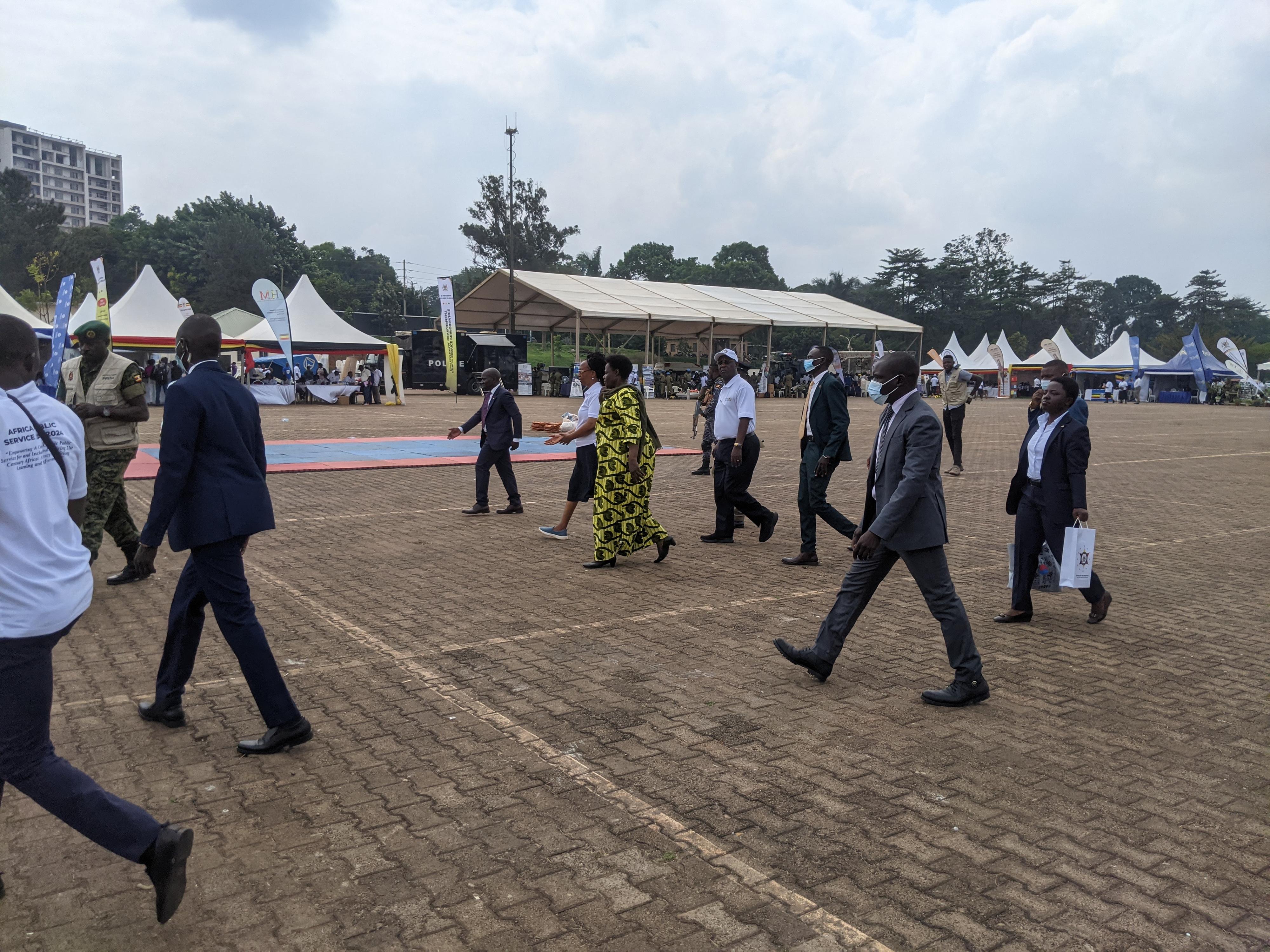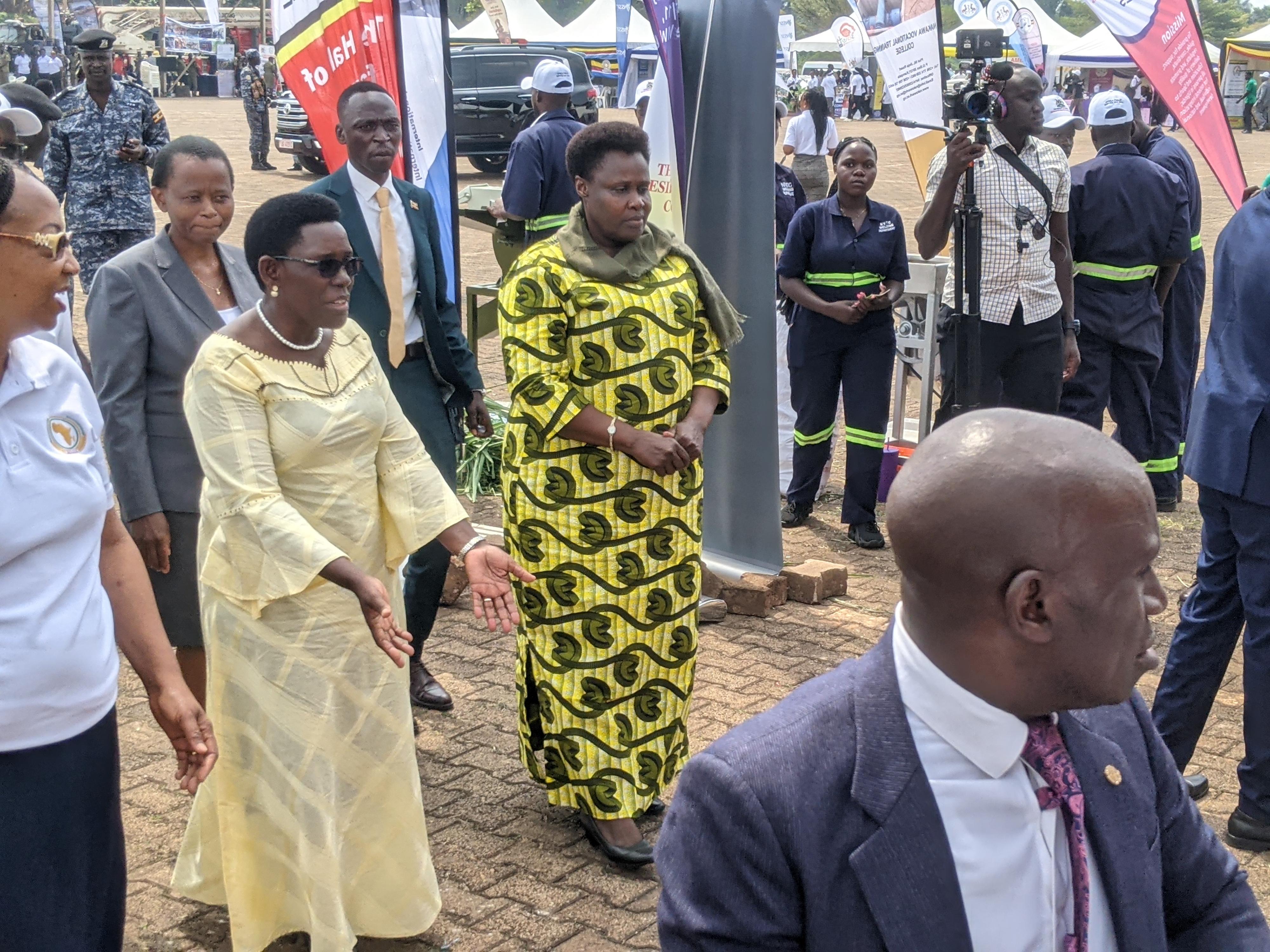LC5 chairpersons want to be made signatories to accounts

A participant speaks during a workshop on mainstreaming national ethical values among families, youth and children in Mbale last week. PHOTO/FRED WAMBEDE
What you need to know:
- Uganda's national ethical values include honesty, justice and fairness in dealing with others, respect for humanity, national unity, integrity and hard work.
A section of district leaders in Bugisu Sub- region have said the District Local Government Act should be amended to make district chairpersons signatories to district local government accounts to enhance accountability and in combating corruption.
Currently, the chief administrative officer (CAO) and chief finance officer (CFO) are the principal signatories on the district accounts.
The chairperson of Namisindwa District, Mr Jackson Wakweika, said on several occasions funds sent from the Central Government have been misused in their respective districts by technical staff but they only come to learn about it when the financial year has ended.
“We must have the amendment in place to ensure chairpersons are signatories to minimise the chances of financial mismanagement because most of the time, we learn about it when it's too late and nothing can be done,” he said.
Mr Wakweikwa made the remarks during a regional district integrity promotions workshop organised by the Directorate for Ethics and Integrity to enhance service delivery in districts of Manafwa, Bududa, Mbale, Mbale City, Namisindwa, Sironko and Bulambuli at the weekend.
In attendance were resident district commissioners, district chairpersons, chief administrative officers, district police commanders, and district service commissioners, among others.
One of CAOs told Monitor on the sidelines of the meeting that the demand by the chairpersons can be detrimental to the smooth running of the local governments.
“I think the demand should be disregarded because it will make matters worse due to intractable conflicts,” the CAO, who preferred not be named on personal security grounds, said.
Religious leaders, on the other hand, acknowledged a rise in corruption at both local governments and central government but attributed it to a decline in morals among the masses.
“We recently also learnt from Daily Monitor that a corruption scandal had hit the State House. This means corruption is everywhere and it calls for collective effort to fight it,” Mr Patrick Wambi of Mbale Elders Council said
The religious leaders, who were also empowered in main-streaming national ethical values among families, youth and children, also expressed their disappointment with political leaders, whom they said have failed to lead by example and inspire the younger generation in the country.
Pastor Naboth Olupot said the current leaders, including the elderly, should be blamed for degeneration of morals and corruption.
“Let them give way for the young people who can help to bring back our morals since they have failed us,” he said.Pastor Moses Okwel from Mbale City said there is need to improve the relationship between the State and religious institutions if corruption and other vices are to be stamped out.
Mr Nicholas Abola, the commissioner communication and information at the directorate of Ethics and Integrity, said religious leaders should support the government in the fight against corruption because they possess a unique advantage in reaching large congregations regularly in their places of worship.
“They should influence to instil values such as hard work, respect for humanity, and environmental stewardship among their followers so as to prevent further erosion of our traditional values,” he said.
Mr Justus Rubarema, the assistant commissioner religious affairs at the Directorate for Ethics and Integrity, said the enactment of the National Ethical Values Policy will help to tackle unprofessional behaviour such as corruption in both public and private affairs.
“The policy is to promote and preserve the rich cultural identity and values of Uganda in order to enhance national development,” he said.
Uganda's national ethical values include honesty, justice and fairness in dealing with others, respect for humanity, national unity, integrity and hard work.
The Permanent Secretary at the Directorate for Ethics and Integrity, Mr Alek Okello, asked members of the district integrity promotion forum to exercise their mandate in the fight against corruption starting from the grass roots to the district level.
“This will promote service delivery and avoid counter accusations between actors and also ensure that activities in the district are done with integrity,” Mr Okello said.
He also called for religious leaders’ support in implementing the national ethical values.
“A discussion has to start in churches and mosques to ask what went wrong and how far we are implementing the National Ethical Values Policy, linking their sermons towards hard work for self-reliance and government initiatives. They must understand this policy,” Mr Okello said.




